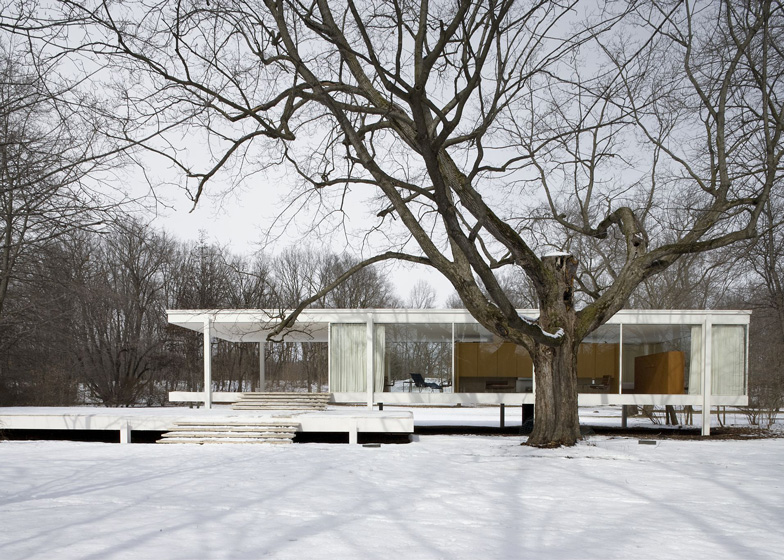News: preservationists have proposed a system of hydraulic jacks that could safeguard Mies van der Rohe's Farnsworth House from flood damage by lifting it into the air.
The iconic steel and glass weekend house was famously built by modernist architect Ludwig Mies van der Rohe on the edge of Fox River in rural Illinois and has been flooded three times in the last 18 years, prompting the owner to consider options for its protection.
According to the Chicago Tribune, the Washington-based National Trust for Historic Preservation – who bought the house at auction in 2003 – presented three long-term options for protection to a board of architects and preservationists earlier this week.
"It's concerning to us that the house has already flooded a number of times," trust president Stephanie Meeks told the paper. "Given the research, we feel compelled as the stewards of this property to take that threat seriously and consider what our options are."
The preferred choice, priced between £1.5 and £1.8 million, would involve temporarily moving the house from its site, then installing a system of hydraulic steel trusses and a pit from which floodwater could be pumped away.
"I think one of the risks is that this is a new application of an old technology," said Meeks. "The risk is overcoming the question mark in people's minds. People will want to be satisfied that it's the simplest solution."
The second option, costing £1.7 million, is to raise the structure on a 3-metre-high mound, while the third and cheapest alternative is to relocate the building away from the flood plain – a proposal that is likely to be met with opposition, due to the site-specific nature of the design.
A technical advisory panel, including Chicago architect and Mies' grandson Dirk Lohan, reviewed the proposals and concluded that the hydraulic lift option looks "most promising".
Mies van der Rohe completed Farnsworth House in 1951 as a weekend residence for client Edith Farnsworth. It was later owned by British developer and architecture patron Peter Palumbo.
Despite being raised off the ground on 1.5-metre stilts, the house suffered severe flooding damage in 1996, 1998 and 2008.
Main photograph is by Carol M Highsmith.

